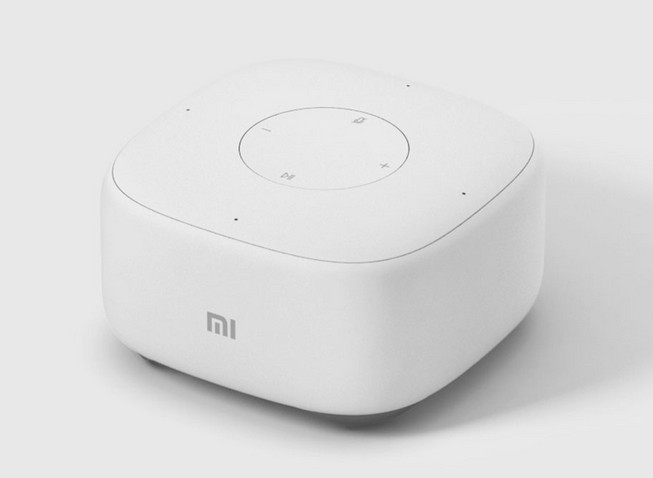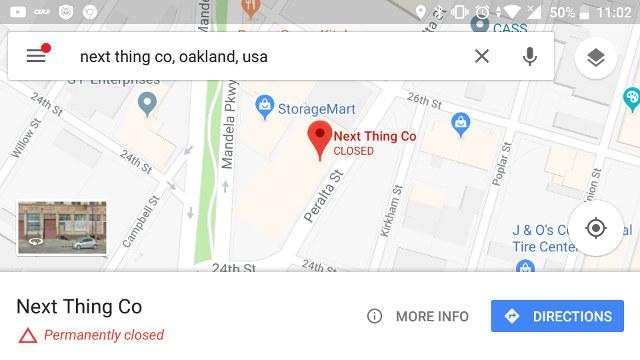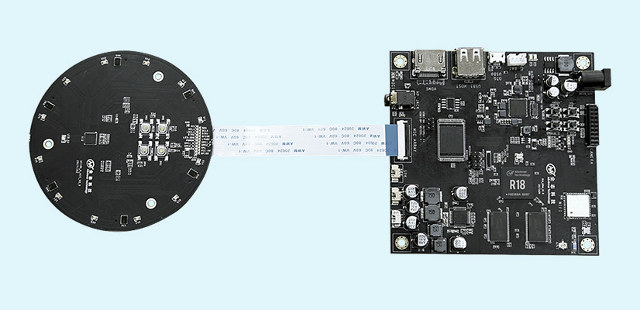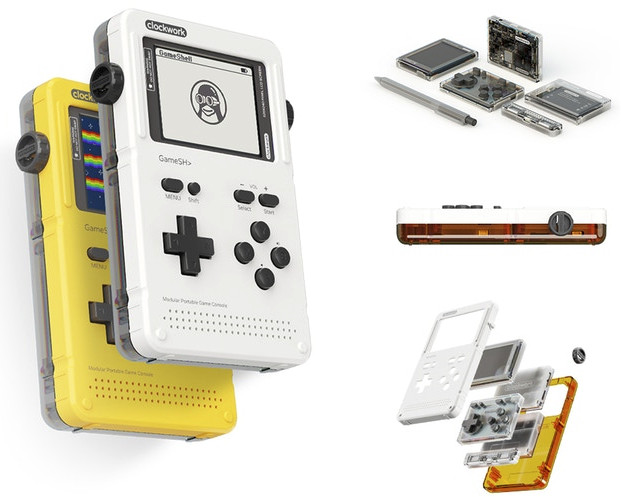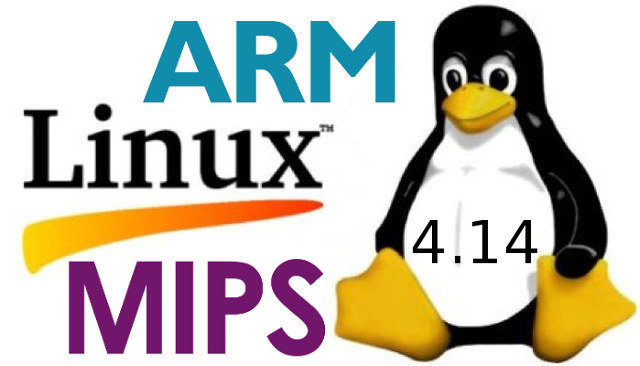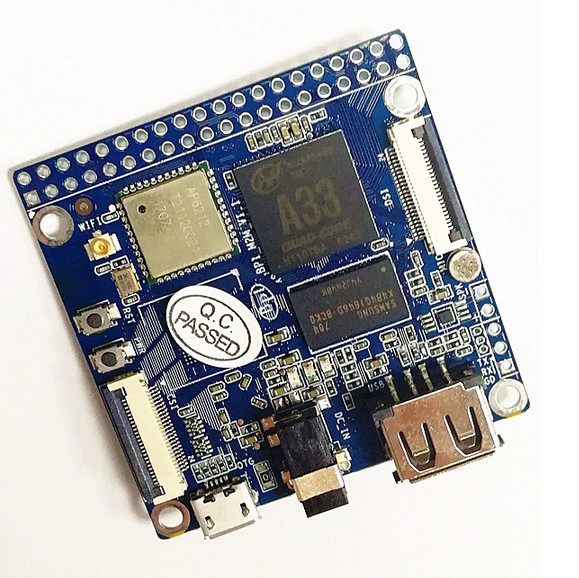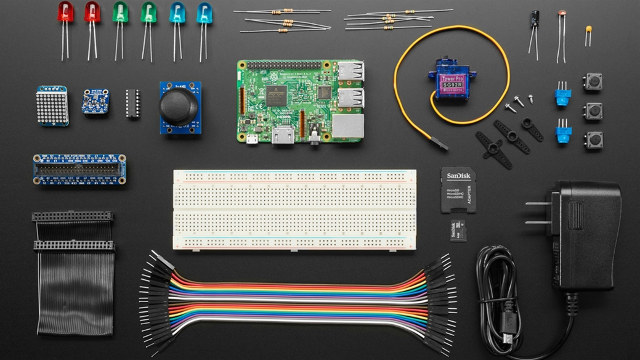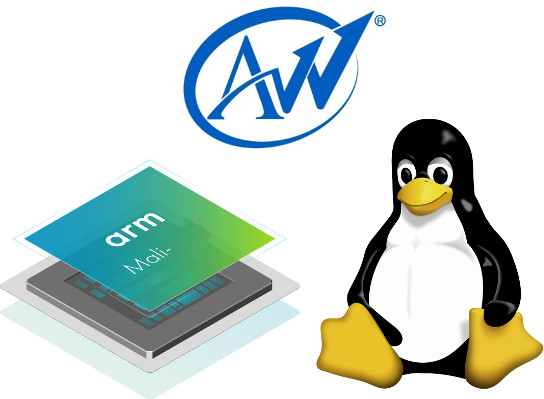Smart speakers are becoming cheaper and cheaper, and in the US and some other countries, Amazon Echo Dot can be purchased for under $50. But Xiaomi has come up with an even cheaper model – for the Chinese market – with their Allwinner R16 based AI Speaker Mini that has just launched for 169 RMB, or about $27, in China. XIaomi Mi AI Speaker Mini specifications: SoC- Allwinner R16 quad core Cortex A7 processor @ 1.2 GHz System Memory / Storage – TBD Speaker 1.5″ 4Ω speaker Frequency Range – 140Hz – 20000Hz Speaker sensitivity – 78dB/m/W Maximum output power – 2W 4x Microphones Connectivity – 802.11 b/g/n WiFi, Bluetooth 4.1 with A2DP support Misc – Microphone on/off button, volume buttons, and play/pause button Power Supply – 5V/2A via micro USB port Dimensions – 90 x 90 x 50 mm Weight – ~210 grams The speaker ships with a power […]
C.H.I.P, PocketCHIP & Voder’s Maker Next Thing Co. Is Still Up and Running (Correction)
[Update: Next Thing Co. CEO (Dave) contacted me to inform me the company was not closed, but there was just several unfortunate events: DNS problem with the site leading to the blog issue Next Thing Co Facebook page was closed months ago (due to too many requests from different sources) The Google Maps listing is not managed by Next Things Co themselves. I’ve left the rest of the post unchanged. (except the last sentence) ] Next Thing Co. introduced the $9 C.H.I.P computer powered by Allwinner A13/R8 in 2015, and worked with Free Electrons (now Bootlin) to bring mainline Linux to the platform. They also launched PocketCHIP portable Linux game console based on the module, and lateron introduced C.H.I.P Pro WiFi + BLE module based on Allwinner GR8 processor, and found in their Voder (previously Dashbot) car dashboard assistant. I’m actually still using a C.H.I.P board as a printer server, […]
$129 Allwinner R18 based 3-Mic Far Field Amazon AVS Development Kit in the Works
Several companies are already offering development kits for Amazon AVS (Alexa Voice Service), but as we’ve seen in the past, those are rather expensive with far-field kits such starting at $349 with kits such as Synaptics AudioSmart 4-Mic Development Kit, or Intel Speech Enabling Developer Kit, and hands-free kits being barely cheaper at $299 and up. But there will soon be a cheaper solution, as Allwinner and SinoVoIP (aka Banana Pi) are working on “SoC-Only 3-Mic Far-Field Dev Kit for Amazon AVS” that includes 3 microphones, and works without special DSP, relying instead on Allwinner R18 processor’s audio codec and capabilities. Allwinner SoC-Only 3-Mic Far-Field Dev Kit for Amazon AVS (aka R18-AVS-EVK) specifications: SoC – Allwinner R18 quad-core Cortex-A53 processor @ 1.15GHz with Mali400MP2 GPU System Memory – 1GB DDR3 Storage – 8GB eMMC flash Video Output – HDMI Audio – 6x Microphones, 2x AEC, AUX and headphone output; GMEMS voice […]
Gameshell Portable Retro Gaming Console Features Clockwork Pi Allwinner R16 Board (Crowdfunding)
Allwinner R16 with its lowly four Cortex A7 cores and Mali-400MP2 GPU would not normally come to mind when designing a gaming console. But Nintendo used the R16 processor twice in their retro gaming consoles: NES Classic and SNES Classic Edition. Clockwork, a startup based in Hangzhou, China, decided they could also do gaming console with the processor: Gameshell. But their product is quite different, as it’s both a portable console with 2.7″ display, and a development platform with the console based on Clockwork Pi development board, and an Atmel AVR (Arduino) based keypad board. Gameshell specifications: Clockwork Pi development board SoC – Alwinner R16-J quad core Cortex A7 processor @ 1.2 GHz with Mali-400MP2 GPU System Memory – 512MB or 1GB (in future revision of the board) Storage – 1x micro SDHC slot Video Output / Display I/F – 18-bit RGB display interface, micro HDMI (planned in revision of […]
Linux 4.14 Release – Main Changes, ARM & MIPS Architecture
Linus Torvalds has announced the release of Linux 4.14: No surprises this week, although it is probably worth pointing out how the 0day robot has been getting even better (it was very useful before, but Fengguang has been working on making it even better, and reporting the problems it has found). Sure, some of the new reports turned out to be just 0day doing things that just don’t work (ie KASAN with old gcc versions, but also doing things like loading old ISA drivers in situations that just don’t make sense – remember when you couldn’t even ask if the hardware existed or not, and just had to know), but even then it’s been all good. The appended shortlog is obviously only for the (small) haul since rc8, and it really is tiny. Not very many commits, and they are small. The biggest thing that stands out in the diffstat […]
Banana Pi M2 Magic Board Now Sold with Allwinner A33 Processor for $23
Banana Pi M2 Magic development board was first unveiled in February of this year with an Allwinner R16 SoC, 512 MB RAM, and 8GB eMMC flash, and its main selling points were support for MIPI DSI LCD displays, CSI cameras, and 3.7V LiPo batteries. AFAIK SinoVoIP never sold that version of the board, at least on Aliexpress. Possibly due to the intricacies of Allwinner business units, the company has now officially launched Banana Pi M2 Magic (aka BPI M2M), but replaced Allwinner R16 by the similar Allwinner A33 processor, and removed the 8GB eMMC flash to bring the price down to $23 plus shipping. The “old” Allwinner R16 based Banana Pi M2 Magic board will apparently be sold as M2 Magic Plus soon. Banana Pi BPI-M2 Magic (A33) specifications: SoC – Allwinner A33 quad core ARM Cortex-A7 processor with ARM Mali 400 MP2 GPU System Memory – 512MB DDR3 Storage […]
Google Cloud IoT Core Enters Public Beta, Various Devkits Available
Back in May, I wrote about Allwinner R18 based Banana Pi BPI-M64 Board with Google Cloud IoT Core support, as Google unveils the new cloud service during Google I/O. However, at the time it was only available to selected partners, and Google has recently launched the public beta making their IoT device management platform available to all. I first learned about this through an ARM community blog post announcing availability of the ARM-based IoT Kit for Cloud IoT Core on Adafruit using Raspberry Pi 3 board, a breadboard, and various modules that can be managed through Google services. But that are plenty of other IoT kits or boards for Google Cloud IoT Core including: Allwinner R18 based Pine A64-LTS, Banana Pi BPI-R18 Marvell based MACCHIATObin, and ESPRESSOBin boards Mongoose OS IoT starter kit with ESP32 board( instead of Raspberry Pi 3) Grove IoT Commercial Developer Kit based on Intel NUC […]
Allwinner SoCs with Mali GPU Get Mainline Linux OpenGL ES Support
OpenGL ES support in Linux for ARM SoC is usually pretty hard to get because of closed source binary blobs coupled with the manufacturers focus on Android. Workarounds include open driver projects such as Freedreno for Qualcomm Adreno GPU, Nouveau for Tegra, or Etnaviv for Vivante GPUs, as well as libhybris library that converts Linux calls into Android calls in order to leverage existing Android GPU binary blobs. Allwinner processors relies on either PoverVR or ARM Mali GPU, and the former does not have any open source project, while some work is still being going for the latter with Lima project, but it’s not ready yet. That means so far, you’re only option was to use libhybris for either GPU family. The good news is that Free Electrons engineers have been working on OpenGL ES support for ARM Mali GPU for Allwinner processor, and have been allowed to release the […]


